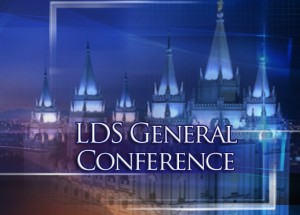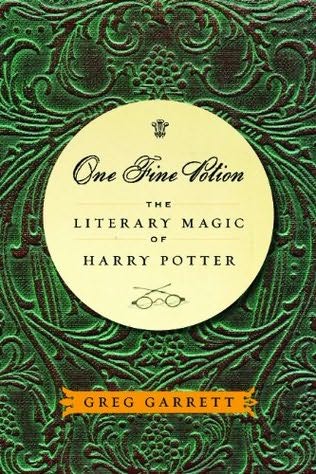I am kvelling today, flush with pleasure at the happy news that one of the books I edited has just been nominated for a 2011 Christianity Today book award in the Christian Living category. The book is called What Was Lost: A Christian Journey through Miscarriage. The author, Elise Erikson Barrett, has written here on Flunking Sainthood about miscarriage, and in celebration of the nomination I wanted to run a short excerpt from the book today.
Can I just tell you how much I love this book? It’s the book I wish I had had when I was reeling from a miscarriage myself, stunned by the loss and trying to make sense of it theologically. Elise writes beautifully about our grief at this invisible loss, and about where God is in both the joy of pregnancy and the disappointment of its sudden end. If you know someone who is struggling in the aftermath of a miscarriage, I hope you’ll pass on the word about this loving and hope-filled resource.
And speaking of hope, here’s a note to aspiring writers: WJK plucked this book proposal out of the “slush pile,” that dreaded stack of unsolicited manuscripts from authors who are usually unagented and have not been published before. Writers, there is hope! Don’t give up. –JKR
Introduction
By Elise Erikson Barrett
You may have picked up this book for any number of reasons. Maybe you had a miscarriage last week, or maybe you had a miscarriage twenty years ago, and you’re trying to figure out how to handle the grief. Maybe you saw the word “miscarriage” on the book’s spine, and it caught your eye because you have a friend who lost a pregnancy. Maybe you’re the spouse or family member of someone who’s had a miscarriage, and you’re working to find healing words even as you struggle with your own complicated emotions. Maybe you’re a pastor doing your best to recognize the loss that one of your church members has experienced. No matter your connection to the topic, I’m glad you found this book, and I pray it proves to be a helpful companion for you.
My name is Elise, and in addition to being a United Methodist pastor, I am a woman who has had multiple early miscarriages. My husband and I experienced our first pregnancy loss while I was still in seminary. I was taken completely aback by how painful it was for me. I had only been pregnant for seven weeks, but still it seemed as though my heart, my sanity, and my life were all splitting into pieces. And so, in my role as full-time student, I tried to deal with my grief and confusion by studying all that had been written about miscarriage. It didn’t take long. Don’t get me wrong–there are a few good resources available, some medical, some psychological, some spiritual, and I’ll do my best to point you toward some of the books and articles I found helpful. But I could find very little of what I really needed–reflections about questions like, “Where was God?”, “Did this little life matter to anyone but me?”, and “Why does everyone keep telling me that there was a reason for this?”
When we lost that first pregnancy, I had rarely heard anyone else talking about miscarriage, yet according to statistics, approximately one in four pregnancies will end in miscarriage. Why didn’t these two things match up? I didn’t know many other people who had been through something similar, but that changed quickly. My experience was a little like a password into a secret society. As people discovered that I’d had a miscarriage, all sorts of women and men would quietly sidle up to me and say, “We lost our first baby too,” or “I had three miscarriages fifty years ago.” This kind of loss has touched so many people, and yet we don’t seem to have ways of talking about it.
Even in the church–perhaps especially in the church–we Christians have a tough time knowing what to do with miscarriage. We know how to have baby showers, how to bring casseroles and rock new babies and crochet booties. But we don’t know what to do when a pregnancy ends too soon. An infant death or stillbirth, while unspeakably tragic, does carry rituals–a funeral, a visitation, bereavement cards and flowers. We don’t really know what to do for people who have lost pregnancies before a baby ever appeared.
And so this book is meant to be a companion on the journey through a complicated grief for those whose pregnancies have ended too soon. You will notice that I share a great deal of my own story within its pages. This is not intended to serve as an example of what pregnancy losses should feel like. Far from it. Instead, my hope is that as you read about my own experiences and those of other women, you will be better able to sort through and tell the story of your own experience. Think of it as a conversation we’re beginning. Every person’s experience of this loss will be fundamentally different. There are no “should’s,” no “ought’s,” related to your feelings…..
One final story before we begin. I was serving as a pastor at a downtown church when a woman who had lost a pregnancy at twelve weeks came into my office. Like any good Christian girl, her first stop had been her local Christian bookstore. She kneaded damp Kleenex on her lap as she said to me, “There wasn’t anything! Not a thing! They had books on healing from abortion, books on pregnancy, books about children, but nothing about miscarriage! Am I the only person to ever have trouble dealing with this?” She is not the only one–far from it. And this book is for her, and for people like her, and for people who love people like her. I pray that it will help you walk through this grief, and I pray that it will help you trust God again.

